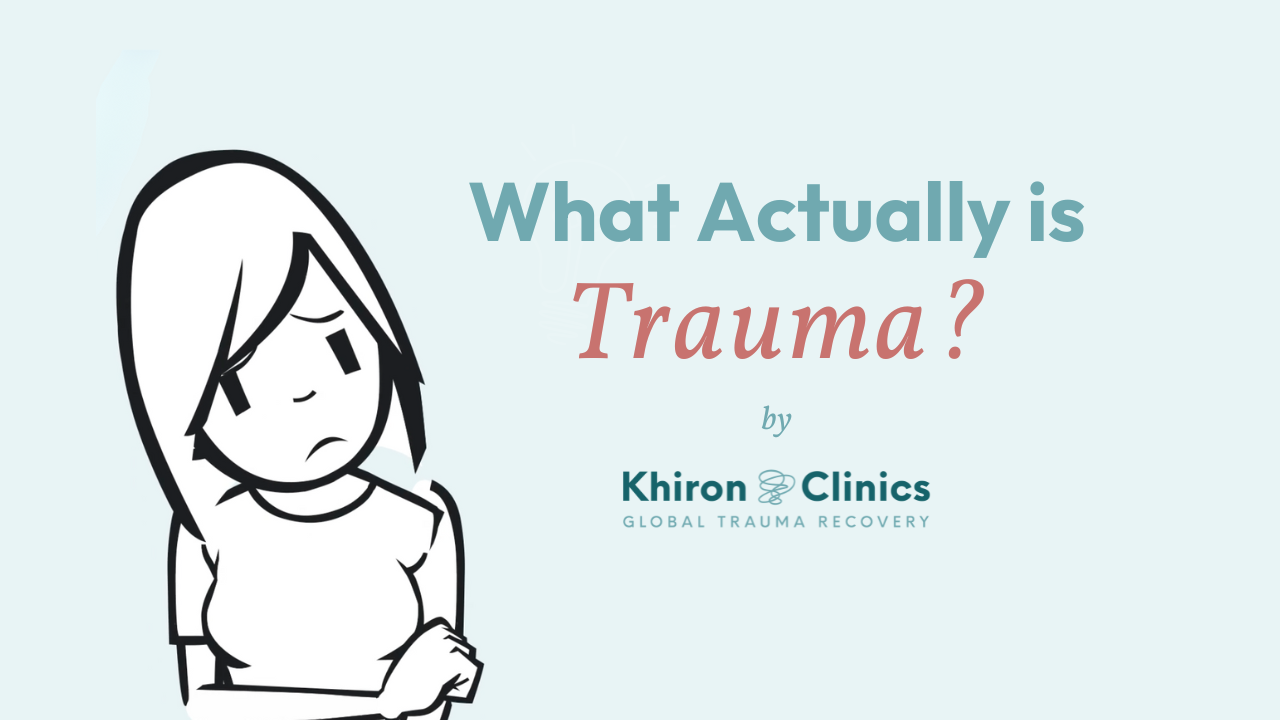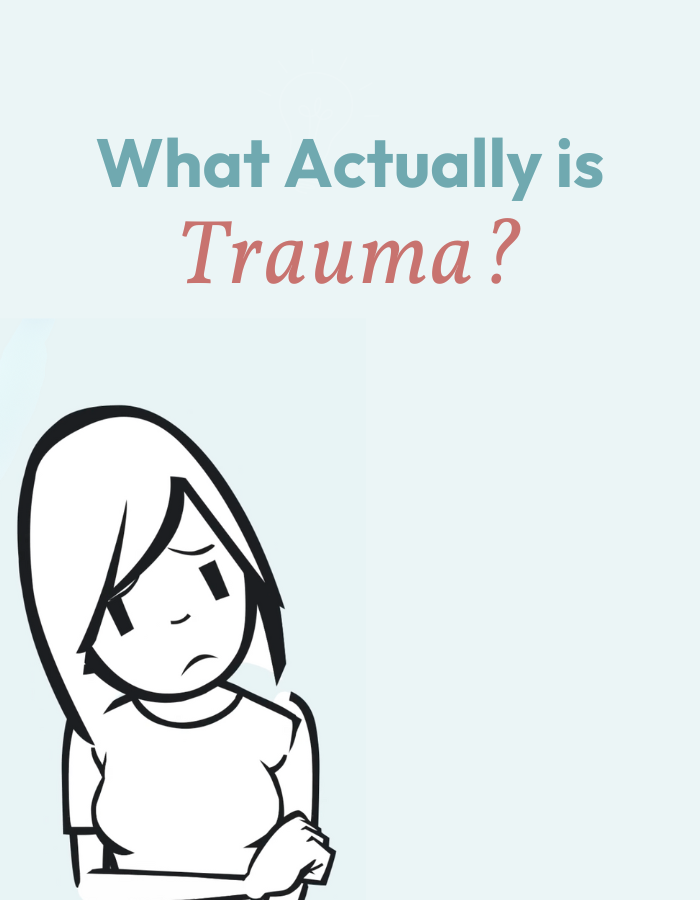Trauma and Anxiety Treatment Tailored to Your Healing Journey
Understanding Trauma’s Role and Our Treatment Approach
Learn more about anxiety, its relationship with trauma, and Khiron Clinics’ novel approach to treating it. If you are struggling with irrational fear, panic, worry or an overwhelming and persistent sense of unease, you may be suffering from anxiety.
Anxiety is one of the most common mental health challenges, yet it is often rooted in unresolved trauma and the survival patterns the body learned in response to past overwhelm. These patterns can manifest as overlapping anxiety disorders, making the experience confusing and difficult to navigate alone. The guidance of a qualified mental health professional can help untangle these layers, identify the underlying drivers, and support you toward meaningful, lasting healing.
We are here to help.
At Khiron Clinics, we see mental health issues as manifestations of unresolved trauma that lead to a dysregulated nervous system.
At Khiron clinics, we see mental health issues as manifestations of unresolved trauma that leads to a dysregulated nervous system.
How Stress Can Develop into Anxiety

Everyone feels stress at times in their lives. Stress is essentially a result of pressure from within, from others, or from the environment that we exist in. When stress is prolonged, it can develop into anxiety.
We naturally experience stress when we feel unable to cope. When stress remains in the body after the significant demands have passed, the nervous system can fail to calm down, and can become dysregulated.
When the stress response remains activated, the body may develop early anxiety symptoms such as tension, fatigue, or difficulty concentrating. We help clients build sustainable coping strategies to calm this physiological cycle before it intensifies.
Whilst some stress is helpful and can lead to productivity, prolonged stress develops into anxiety, and it can have detrimental effects on the body and mind. When we are anxious, we tend to sleep badly, experience stomach issues and lower emotional resilience. Some may drink alcohol or use other substances to cope.
Persistent reliance on alcohol or drugs can lead to substance abuse and further compromise physical health. Our integrated programmes also provide pathways for substance abuse treatment, addressing the emotional pain that often fuels dependency.

What Are the Signs of Anxiety?
The main symptoms include:
- Trouble concentrating or making decisions
- Feeling irritable, tense or restless
- Experiencing nausea or abdominal distress
- Having heart palpitations
- Sweating, trembling or shaking
- Trouble sleeping
- Having a sense of impending danger, panic or doom
While anxiety itself is a common symptom of many mental disorders, prolonged anxiety may progress into more complex conditions such as generalised anxiety disorder, panic disorder, or posttraumatic stress disorder (PTSD). Each presents with distinct emotional and physiological responses that require a nuanced therapeutic approach.
When symptoms persist, anxiety becomes a symptom of other related conditions, such as:
- Panic attacks
- Social anxiety
- Depression
- Phobias
- Obsessive Compulsive Disorder (OCD)
- Post Traumatic Stress Disorder (PTSD)
What Causes Anxiety?
- Work-related pressures
- Financial problems
- Health issues
- Relationship difficulties
- Major life changes
- Academic pressures
- Parenting challenges
- Environmental factors
- Lack of control

Anxiety is complex and is usually caused by a combination of factors. The risk factors for anxiety often extend beyond daily pressures. Childhood trauma, sexual assault, exposure to natural disasters, or other traumatic experiences can leave long-lasting imprints on the nervous system. When trauma occurs early or repeatedly, it shapes emotional patterns that persist into adulthood, contributing to ongoing anxiety and difficulty processing past trauma.
At Khiron clinics, we treat mental health issues as manifestations of unresolved trauma that lead to a dysregulated nervous system.

Understanding Trauma and Its Impact on the Nervous System
Trauma is a pervasive experience, with 70% of adults encountering some form of it, such as abuse, domestic violence, relationship breakdowns, crime, and neglect.
Trauma can be either a single event or a series of events over time.
The critical factor is not the event itself, but our internal response to it. As Gabor Maté aptly puts it, “Trauma is not what happens to you, but what happens inside you as a result of what happens to you.”
This internal response often involves storing trauma unconsciously, leaving it unprocessed and unhealed, and impacting our mental health later in life. When an individual is experiencing trauma, the body encodes not only the event but also the accompanying distressing emotions and physical reactions.
These stored trauma memories can resurface later as anxiety or other trauma symptoms, sometimes manifesting as dissociative disorders in severe cases. For childhood abuse survivors, this process can significantly shape emotional regulation and sense of safety.
These stored traumatic memories and distressing memories often resurface unexpectedly. Developing new coping skills helps clients release the body’s learned responses and rebuild trust in safety and connection.
“Trauma is not what happens to you, but what happens inside you as a result of what happens to you.” DR GABOR MATÉ

“Trauma is not what happens to you, but what happens inside you as a result of what happens to you.”
Dr Gabor Maté
The Dysregulated Nervous System
Trauma causes a dysregulated nervous system, where the body continues to react as if the traumatic event is still occurring. This persistent response keeps the nervous system in a state of heightened alert, constantly perceiving threats.
The nervous system comprises the central nervous system (brain and spinal cord) and the peripheral nervous system, which includes the autonomic nervous system (ANS). The ANS has two branches:
- Parasympathetic Nervous System: Known as the rest-and-digest system, it promotes calmness and relaxation.
- Sympathetic Nervous System: Responsible for the fight-or-flight response, it prepares the body to handle threats by increasing heart rate, blood pressure, and adrenaline production, while suppressing non-essential functions like digestion and immunity.
When trauma remains unprocessed, the body remains in a fight-or-flight state, leading to chronic stress and complex mental health issues like anxiety and depression.
To understand more about the nervous system’s role in trauma, explore our founder Benjamin Fry’s book, The Invisible Lion, here.
Treatment for Anxiety and Trauma at Khiron Clinics
Khiron Clinics specialises in nervous system-based treatments for mental health crises. Our team of expert psychologists and therapists focus on understanding and addressing the root causes of mental health issues, often linked to unresolved trauma. By identifying the source of trauma, we help clients embark on a path to recovery, addressing emotional pain and destructive patterns that other therapies have failed to treat.
Traditional therapy often uses a ‘top-down’ (cognitive) approach, focusing on thoughts influencing emotions and behaviours. At Khiron Clinics, we integrate this with a ‘bottom-up’ (somatic) approach, addressing trauma through physiological responses and bodily awareness.
This approach enhances self-awareness, regulates the nervous system, and promotes lasting healing.
Our therapeutic setting supports trauma healing, allowing clients to transfer these skills into their daily lives. This holistic approach not only reduces the effects of anxiety but also helps clients feel more in control, fostering stability and resilience.
Our Therapeutic Approach
- Bodily Awareness: Addressing trauma through understanding physiological responses and safety mechanisms like fight, flight, or freeze reactions.
- Self-Awareness and Nervous System Regulation: Enhancing self-awareness and learning to regulate the nervous system.
- Healing in Relationships: Recognising that trauma often stems from early relationships, we emphasise the importance of building feelings of safety with others, practising effective communication, recognising triggers, and developing coping mechanisms.
We work with you to understand your symptoms and help find the issues at the root of your experience, which are usually linked to unresolved trauma. Through finding the source of the issue, we are better equipped to help you on your path to recovery.
Our Recovery Roadmap
The Three-Phase Approach to Trauma Treatment
Khiron Clinics follows a three-phase approach to treating trauma:
Stabilisation and Symptom Reduction, Trauma Processing and Integration.
Stabilisation
This phase focuses on understanding and getting to know oneself, reducing symptoms, learning about trauma and how to self-regulate so you can stay in connection with others and the present moment.
Trauma Processing
This phase starts by fostering safety and security in the body and mind, allowing individuals to recognise triggers, manage emotions, and make mindful choices. With therapist guidance, they learn to release stuck trauma and emotions by discharging incomplete defensive responses, while also rebuilding compromised life skills such as setting boundaries and building new connections in safe relationships.
Integration
This phase is where we support clients to take their newfound regulation, self-awareness and knowledge out into the real world so that they can apply the skills that they have developed in treatment in their daily life.
Frequently Asked Questions
It can be, yes. Anxiety is often the body’s signal that the nervous system is stuck in a state of protection. When trauma goes unprocessed, the body continues to behave as though danger is present, even long after the threat has passed. This can lead to persistent symptoms such as worry, hypervigilance, restlessness, and difficulty relaxing. At Khiron Clinics, we view anxiety not as a standalone problem, but as a natural response from a dysregulated nervous system that has learned to stay on high alert.
Absolutely. A single traumatic event, such as an accident, assault, medical emergency, or sudden loss, can overwhelm the nervous system and disrupt its natural ability to regulate. When the body cannot return to a state of safety, the stress response becomes chronic, developing into anxiety. Trauma does not need to be extreme to have a significant impact; what matters is how the body experienced and internalised it.
Trauma and anxiety are deeply interconnected. Anxiety often develops when the nervous system becomes conditioned to anticipate danger due to past trauma. Effective recovery requires addressing not only the symptoms (like panic or intrusive worry) but also the underlying trauma that imprinted these patterns. Our treatment combines somatic (bottom-up) therapy with psychological (top-down) support to help clients restore regulation, safety, and emotional balance.
Yes. PTSD can lead to long-term anxiety when the body remains in a heightened state of fight, flight, or freeze. Individuals may experience panic attacks, avoidance behaviours, sleep disturbances, or intrusive memories that keep the nervous system dysregulated. Without trauma-informed treatment, these patterns can persist for years. Healing requires helping the body complete defensive responses, resolve stored trauma, and rebuild a sense of internal safety.
Yes. Behavioural health services are an essential part of trauma recovery when they address both the mind and the body. At Khiron Clinics, our multidisciplinary team uses nervous-system-based treatments that reduce anxiety by targeting its root causes. Through somatic therapies, relational healing, and education on nervous system regulation, clients learn practical tools that help calm physiological responses and support long-term recovery.
The therapists are all experts in trauma reduction, and many other modalities. You can find out more about them here.
We keep a close eye on residential clients’ medical needs but do not supply doctors at either our outpatient or residential clinics.
If you already have a good relationship with a doctor or psychiatrist, then we will work with them to manage your care. We encourage you to stay in touch with your doctors and will arrange online appointments and/or transportation for you to visit them if appropriate from our residential clinics.
Alternatively at the residential clinics we can arrange for a local practitioner to see you. If your medical costs are not covered, you will need to pay for them yourself.
For our residential clinics, clients usually stay for between two to six months.
We strongly recommend that you consider at least a minimum of 60 days to integrate the treatment fully and experience a lasting recovery.
After your assessment with a senior clinician, we will give you our recommendation of which clinic to start your treatment at and how long we estimate your need to spend in residential treatment. You are of course free to leave at any time.
We generally find that most people with trauma have a tendency to want to isolate themselves, and this can be counterproductive to healing. We discourage that with shared communal facilities, many group activities, and where appropriate shared bedroom arrangements.
Khiron Bungalow is a single occupancy residence, usually used for high-dependency clients.
Khiron Lodge is also a single occupancy residence, usually for a client in the Khiron House programme who wants more independence.
All residents at Khiron Clinic have private bedrooms with a bathroom shared between two clients, always of the same gender.
Khiron House is a large five-bedroom house with four shared bedrooms and one single-occupancy room. We believe that this encourages interaction and co-regulation with other residents on the program and contributes to the healing process. Three of the bedrooms have en-suite bathrooms
Khiron Cottage is a shared home with four individual bedrooms. Two rooms are ensuite and two rooms share a bathroom.
To read more about our clinics, download our brochure here.
One of the cornerstones of recovery from trauma is to begin to develop an awareness of what is a trigger and therefore what is your trauma.
We try to help our clients to identify their baggage and how it reacts to life and situations. Therefore, much of the work at Khiron Clinics is to understand how we react to other people and take care of that appropriately.
However there needs to be a balance between triggers and treatment. If sharing a room with someone is becoming overwhelming, then we will make new arrangements for you both. Our priority is to make sure that your treatment is effective.
Khiron House and Khiron Clinic usually have a population of around 6 to 12 residents each.
Khiron House is a large comfortable home with all the normal conveniences of a well-appointed residence. There are several communal lounge areas, including a quiet room, a large kitchen-dining area, access to twelve acres of garden and grounds, a home gym, a communal computer and landline phone, and access to cold water therapy (with permission from the clinical team). We also have a resident cat.
Clients at the residential clinics have a regular and intensive clinical schedule, but this does not mean that every minute of every day is managed for them. An important part of trauma healing is ‘down-time’ which allows the nervous system to integrate changes.
The clinics have a very full programme during the week with less intense activities at the weekend. There is also plenty of free time for more personal activities. Typically, we find that residents struggle to complete the full programme, although we strongly recommend that they do.
For residents who need to have their down-time structured, Khiron Clinic is staffed 24/7 for additional support.
When any of our clinics is full, there is a waiting list. We will advise potential clients as soon as we know when a bed will become available.
As long as there is space, we can admit a client at any time. If the clinic is full we operate a waiting list and will advise you as soon as we know that a place is due to become vacant.
As people leave and enter treatment at Khiron Clinics the group dynamic will change. This gives residents a chance to build new relationships and to reevaluate old ones.
One of the metrics of how your treatment is progressing is often to observe how you adjust to new residents as they arrive, and to saying goodbye to established relationships as existing residents leave.
At Khiron Bungalow and Khiron Clinic, we ask you to get permission from the clinical team to leave the premises. Clients who are staying in these clinics have a higher need of care and therefore we like to know that they are safe at all times.
At Khiron House you can leave the building in between sessions as long as you take a Khiron House mobile phone with you and sign in and out. If you want to go out for more extended absences, we ask you to obtain the permission of a senior clinician.
For the privacy and safety of our clients, visitors are not allowed into Khiron Clinics, but clients are allowed to be collected and to go on outings with visitors with the permission of a senior clinician.
Community is a therapeutic component of the treatment at Khiron House. You will share a kitchen with other clients and cook for yourself. This can be done individually or in groups as you wish. The clinic’s goal is to prepare you for independent living.
Khiron Clinic provides meals for our residents who are working towards more independence.
There is a communal television available in each clinic.
Khiron House has washing machines and dryers for the use of clients.
Smoking is strictly only allowed in certain locations outdoors. At our residential clinics, you will find designated smoking areas overlooking the picturesque countryside.
Once you have booked into the clinic you will receive an information pack with all the instructions you need to prepare for your stay at any of our residential clinics.
You can take a mobile phone and laptop to the clinics, but they will be kept for you in the office. You will have to get permission from a clinician before having access to them, if necessary. You will be given a Khiron House mobile phone if you go out on unsupervised outings.
We believe that this is a very important measure in residential treatment designed to protect privacy, reduce distractions, minimise stress and triggers, ensure safety, and encourage social interaction and engagement.
It is not advisable to bring these to the clinics. There is equipment for listening to music in the communal areas.
Confidentiality and privacy are very important in treatment, so cameras are strictly prohibited at the clinics, as is the use of mobile phones in the community.
Our prices are listed in our brochure, which you can download here.
Our residential clinics aim to be a therapeutic community, not a hotel. We don’t want residents to become de-skilled and institutionalised. Our goal is to treat people towards a safe discharge into an independent life. Therefore, as part of the clinical programme, residents are encouraged to build their skills towards this independence.
At Khiron Bungalow and Khiron Clinic, meals are included in the cost of treatment while our residents there work towards more independence and a transition to Khiron House or discharge.
In Khiron House, the normal activities of living in your own home are encouraged. You are expected to shop in a group outing and to pay for your own groceries, toiletries, medication, and any other personal or medical needs, just like you would need to do at home
We will do everything we can to help you to process an insurance claim accurately. The outcome of your claim will depend on your policy and your insurer. Please see our funding page here.
We don’t offer any instalment plans for treatment. For other options and information, please see our funding page here.
Unfortunately, no-one funds our service other than our clients. We acknowledge that it is an expensive service and therefore can be frustratingly financially out of reach for people who need it. Nonetheless, we are not able to give discounts because otherwise we would struggle to maintain our quality of services.
We do however help our clients in whatever way we can to access funding in order to receive treatment with us. Please see our funding page here.
We are unable to do this for residential or individual therapy. We do however offer an optional concession rate for our outpatients’ trauma groups.
This is a complicated issue. Our founder, Benjamin Fry, was in treatment himself in 2010 and ran out of money. He found that, as a result, the treatment that he could pay for was compromised by the uncertainty of if it could continue and when it might end. It is not a recommended experience.
As a result, we ask clients who are paying for themselves to secure 60 days treatment funding in advance of coming into residential treatment. This is then topped up every 30 days with another 30 days funding. This ensures that all our residents know that they are secure in treatment for between 30 to 60 days at any one time.
If a resident is struggling to continue treatment for financial reasons, we will have a few weeks’ notice to plan how to deal with this. That buffer of time is vital for making other arrangements or solving the problem, while carefully and calmly planning a discharge and aftercare plan.
Treatment can be triggering and full of ups and downs. Usually, these experiences resolve in a few hours or days.
We had learned over the last decade or so that clients who react to these fluctuations by impulsively leaving treatment usually find that experience to be very unhelpful and difficult. As a result, we encourage pause and reflection, and safe, planned discharges, by having a seven-day notice period for residents to leave the residential clinics.
You can give notice at any time and are of course fee to leave whenever you wish. At the end of the seven days, you will receive a refund of any days you have paid for and not used. It has been our experience that this has created a safer treatment community for all our residents by slowing down decisions and allowing for time calmly to consider important decisions and to plan significant change.
No. We expect clients to be referred to us for clinical reasons, and not because of any financial incentive.
In the UK…
We can provide you with any documentation you require to validate your treatment. However, we cannot advise on benefit entitlements, and you will have to check if staying at our residential clinic will affect your payments in any way.
We’re sorry your question has not been answered yet. We will do our best to answer it for you directly in person and then add it to this list. Please do contact us and tell us what you would like to know. It might also help someone else one day.
Khiron IOP Day Clinic provides up to four days a week of all-day treatment, from 10 am to 4 pm, offering four groups per day. You will receive one individual session if you attend two to three days per week, and two individual sessions if you attend four days per week. We have a minimum two-day attendance requirement, but these need not be consecutive, depending on availability.
The groups are based on a two-week schedule, incorporating a daily process group that allows clients to understand how to communicate their feelings using our boundary model. Other groups include somatic movement, yoga-informed movement, somatic regulation techniques, boundary group, mindfulness and meditation, creative expression, collage group, creative writing, attachment and relationship styles, equine therapy, and parts work. There is a maximum of seven people in each group, and we require a commitment of one month.
Yes. You will be able to discuss any issues or concerns you have with your therapist, who has regular meetings with our clinical supervisor to discuss clients’ progress and treatment plans. If you are concerned or unhappy about your treatment at any time, you may request a discussion about your treatment plan with the clinical director to review it.
EMDR and neurofeedback are specialist areas run by qualified clinicians. If this treatment is within your care package, you will work with a specific clinician.
A regular commitment to attend weekly sessions will aid your recovery, giving you the best chance of experiencing a reduction in your symptoms and an increased capacity to cope with stressful situations or everyday life.
We have a 48-hour cancellation policy for both groups and individual sessions.
We routinely offer assessments at the clinic before creating any treatment plan with you, so it is not necessary for you to see a psychiatrist or specialist before contacting us for therapy.
We require any client in active addiction to commit to being two weeks sober/clean prior to commencing therapy.
An individual’s length of treatment depends on how you respond to the therapy and the therapists. We work with a three-stage trauma model. Following your assessment, we will suggest how long we think you might need in treatment; however, this may change during your treatment plan.
- Stage 1 is stabilization and looks at the autonomic nervous system, building trust and safety, among other key developmental areas.
- Stage 2 moves into processing of trauma.
- Stage 3 works with integration and life skills as a smooth transition onwards.
Our outpatient service can be accessed in-person or online. The programme gives you one one-to-one trauma reduction session per week with a specialist clinician and access to trauma-informed online groups: Tuesdays at 10 am-11:30 am and Wednesdays at 12 pm-1:30 pm, subject to availability.
Where appropriate, we may recommend two sessions per week. It is a fixed-cost, 10-week intervention designed to reduce reactivity in the nervous system, which has been proven to reduce the symptoms of most common mental health disorders and illnesses as well as support recovery from chemical and behavioral addictions. We also offer 10 EMDR outpatient sessions in person and a neurofeedback service. For neurofeedback to be effective, attendance should be twice per week.
The programme provides access to our expertise for new clients as well as a seamless pathway to a lower level of care for our clients transitioning from residential or IOP Day Clinic programmes.
When you are close to completing your 10-week program, you can discuss next steps with your therapist and continue in the programme as long as you wish.
Our groups are based on a group sharing dynamic and behavioral boundary rules that help you to see how your trauma and your relationships affect each other. There is a maximum of ten people in each group, and after your first session, we ask for a regular commitment to attend that group each week.
Yes. You will be able to discuss any issues or concerns you have with your therapist, who has regular meetings with our clinical supervisor to discuss clients’ progress and treatment plans. If you are concerned or unhappy about your treatment at any time, you may request a discussion about your treatment plan with the clinical director to review it.
A regular commitment to attend weekly sessions will aid your recovery, giving you the best chance of experiencing a reduction in your symptoms and an increased capacity to cope with stressful situations or everyday life.
We have a 48-hour cancellation policy for both groups and individual sessions.
We routinely offer assessments at the clinic before creating any treatment plan with you, so it is not necessary for you to see a psychiatrist or specialist before contacting us for therapy.
We require any client in active addiction to commit to being two weeks sober/clean prior to commencing therapy.
An individual’s length of treatment depends on how you respond to the therapy and the therapists. We work with a three-stage trauma model. Following your assessment, we will suggest how long we think you might need in treatment; however, this may change during your treatment plan.
- Stage 1 is stabilization and looks at the autonomic nervous system, building trust and safety, among other key developmental areas.
- Stage 2 moves into processing of trauma.
- Stage 3 works with integration and life skills as a smooth transition onwards.
Khiron Child and Adolescent service is a trauma service offering specialist assessment and tailored interventions to children, adolescents, young adults and their parents.
Interventions draw from a range of trauma informed, evidence-based approaches informed by attachment theory, somatic work, EMDR, polyvagal theory, movement and expressive arts therapies.
Interventions are structured around individual presentation and need and can vary from 1 session per week or more.
Assessment sessions typically take place at our clinic in Harley Street. The process can vary depending on the presentation and developmental needs of the individual being assessed. The assessment will involve meeting with the parent or carer and with the child or young person.
Assessment sessions are structured according to the age and development stage of the child, adolescent or young person and can involve talking, playing, movement and questionnaires.
Parents can accompany their child to the assessment session, if appropriate and helpful.
Each assessment can vary depending on the individual; however, we will typically meet with the parent or carer for an initial session to gain a better understanding of the family history. Following this, we normally meet with the child for a minimum of 2 sessions which will also allow for the completion of trauma psychometrics.
We will inform you if further sessions are needed to complete the assessment.
Once the assessment is complete, a report outlining our clinical recommendations will be shared in an assessment review session.
One to one therapy takes place with the same therapist who will be allocated after the assessment period. However, the treatment plan may involve having different pieces of work with different therapists which will be discussed as part of our recommendations after the assessment.
We strongly recommend a regular commitment to weekly sessions as in our experience this continuity gives the best results. This is particularly relevant when engaging in trauma treatment.
We have a 48-hour cancellation policy.
Our trauma specialists will conduct our specialist assessment and so no prior assessment is necessary, however, it is helpful to have sight of any assessments or reports that have been done in the past.
Many referrals come to our clinic through a psychiatrist or GP, however individuals do not need to be referred to our service by a specialist and can self-refer through a very simple referral process.
Treatment length varies depending on the goals and assessment recommendations and how each individual responds to treatment. Progress will be discussed and reviewed at regular intervals.

Download the Brochure
Discover Our Innovative Trauma Recovery Pathway
Next Steps
We Are Here to Help You Find the Path to Effective, Long Lasting Recovery.

Talk to Us
Get in touch with us and share your story if you feel comfortable with someone who will listen. Our team are always here to help.

Book an Initial Consultation
Meet with a senior member of our clinical team and get insights into the root causes of your issues, plus a written summary and treatment recommendation.

Download Our Brochure
Discover our innovative trauma recovery pathway. Find out more about how we treat, what we treat, our clinics, pricing and more.





